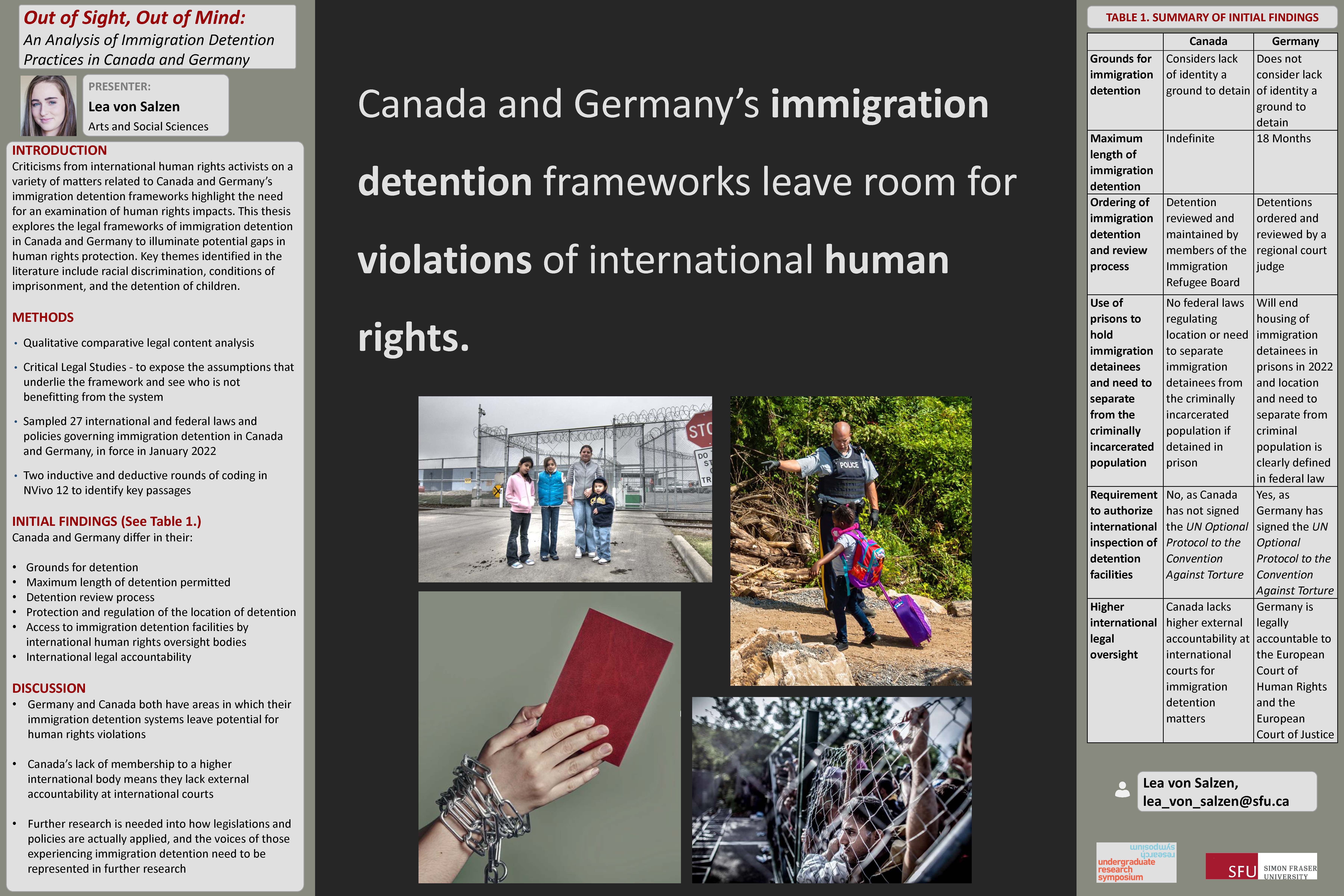Out of Sight, Out of Mind: An Analysis of Immigration Detention Practices in Canada and Germany
Main Article Content
Abstract
International criticisms from human rights activists on a variety of matters related to Canada and Germany’s immigration detention frameworks illuminate the need for an examination of human rights impacts. This thesis explores the legal framework that allows for immigration detention and hopes to draw attention to and shed light on problems in the immigration detention frameworks identified in the literature. Through a qualitative comparative legal content analysis of laws and policies in the two countries, insight can be gained into the similarities and differences between the two countries to ultimately provide information about, and possible solutions to, the challenges faced by policymakers in this domain. Various laws and policies that govern immigration detention in both countries will be analyzed and compared in this thesis, in order to identify key themes and answer the following research questions: 1) How does each country regulate immigration detention? (a) In what circumstances is detention lawful in each country? What makes a detention unlawful in each country? b) How does each country address the key human rights concerns identified in the literature review (namely, racial discrimination, mental health, and child detentions)? (c) What can be learned from each country to better address the human rights impacts of immigration detention? By comparing Canada and Germany, light can be shed on potential human rights issues in the immigration detention frameworks and the domestic policy reform debates in both countries can be enriched.
Faculty Supervisor: Dr. Tamara O’Doherty, School of Criminology, Simon Fraser University
Article Details

This work is licensed under a Creative Commons Attribution-NonCommercial-NoDerivatives 4.0 International License.

